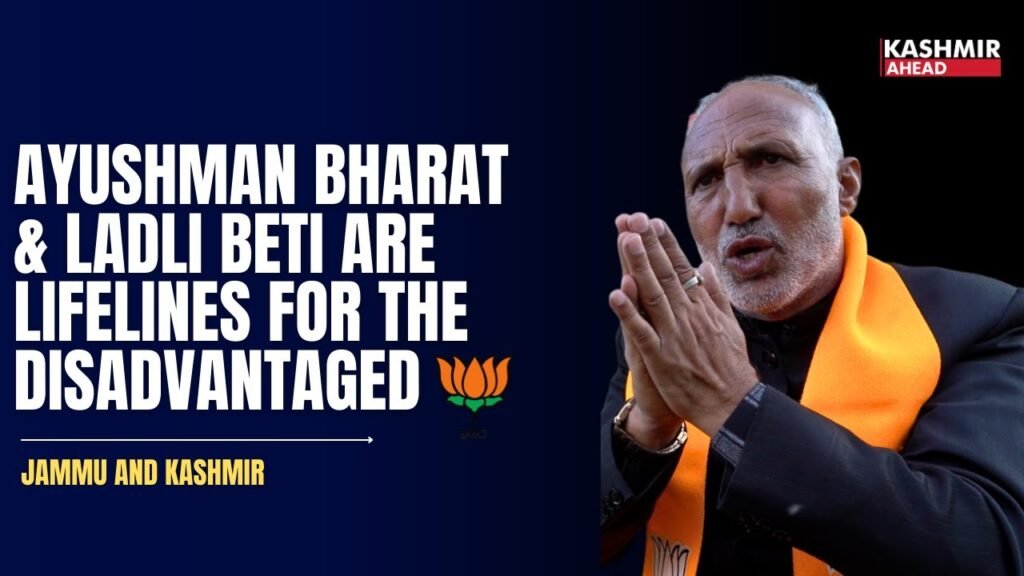In the quest for development, the voices of the people resonate with unity and aspiration. Dr. Ali Mohammad Mir’s recent visits to 125 villages exemplify this collective yearning for progress. Through his encounters, he articulates the transformative impact of the Bharatiya Janata Party under Prime Minister Shri Narendra Modi, emphasising a narrative that champions development as a core tenet of governance. He asserts that the BJP’s manifesto was not merely a document crafted in isolation; it was shaped by the desires and needs of the people. The tangible achievements of the BJP over the past decade are highlighted as evidence of their commitment to development. He mentions initiatives such as providing clean water, electricity, and healthcare to every household. Programs like the Ayushman Bharat scheme and the Ladli Beti initiative are portrayed as lifelines for the disadvantaged, offering opportunities for economic upliftment and social mobility. This focus on welfare has resonated deeply, particularly among the youth and marginalized communities, who see in these policies a chance for a better future. In his interactions, he recounts the stories of elderly residents who have experienced significant changes in their livelihoods. Many expressed gratitude for increased financial support, with some reporting a rise from receiving 60 rupees to 1,000 rupees—a testament to the transformative economic policies of the current government. He envisions a future where this support grows even further, fostering hope and optimism among the people. The broader narrative of change is also reflected in the revitalisation of tourism in Kashmir. Dr. Ali Mohammad Mir notes a surge in tourist arrivals, a stark contrast to previous years. This growth is a symbol of not just economic development but also a shift in perception about the region, highlighting the potential for a thriving local economy bolstered by external interest. In contrast, Omar Abdullah’s critique highlights a decade of BJP governance in Jammu and Kashmir, questioning the loss of autonomy and statehood. He reflected on a time when the region had its own assembly and rights over land and employment, asserting that these have been stripped away, reducing Jammu and Kashmir to a Union Territory status. He emphasised the need for a return to self-governance and promises that if his party regains power after the upcoming elections, they will seek to rectify the perceived injustices faced by the people during BJP’s rule. Ultimately, Dr. Ali Mohammad Mir’s message is one of hope and resilience. The transformation witnessed in these villages underscores the importance of collective action and responsive governance. As Kashmir and the broader landscape of India continue to evolve, the commitment to development remains a guiding principle for the BJP. The journey ahead may be challenging, but with the voices of the people driving the agenda, the possibility for positive change is more tangible than ever.
The Voice of Development: Reflections from Dr. Ali Mohammad Mir’s Journey
Keep Reading
Add A Comment
Services
- About
- Contact
- Video
- Newsletters
- Sponsored News
Subscribe to Updates
Get the latest creative news from FooBar about art, design and business.
© 2025 Kashmirahead. Designed by Creative Milestone..



